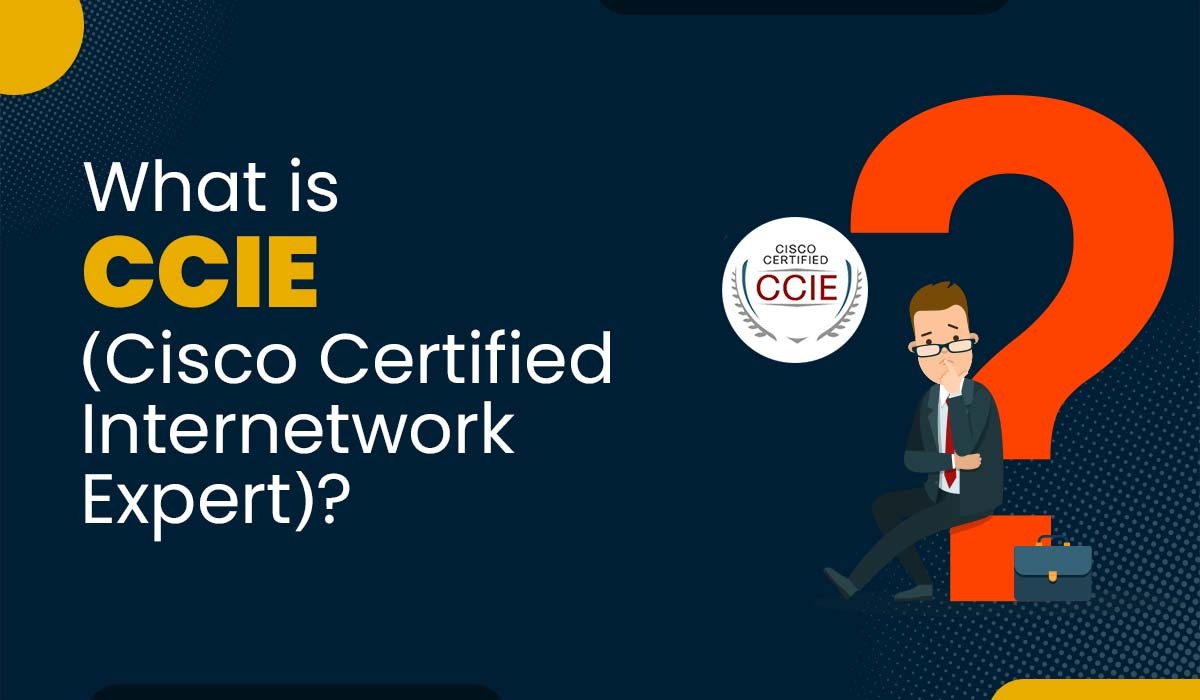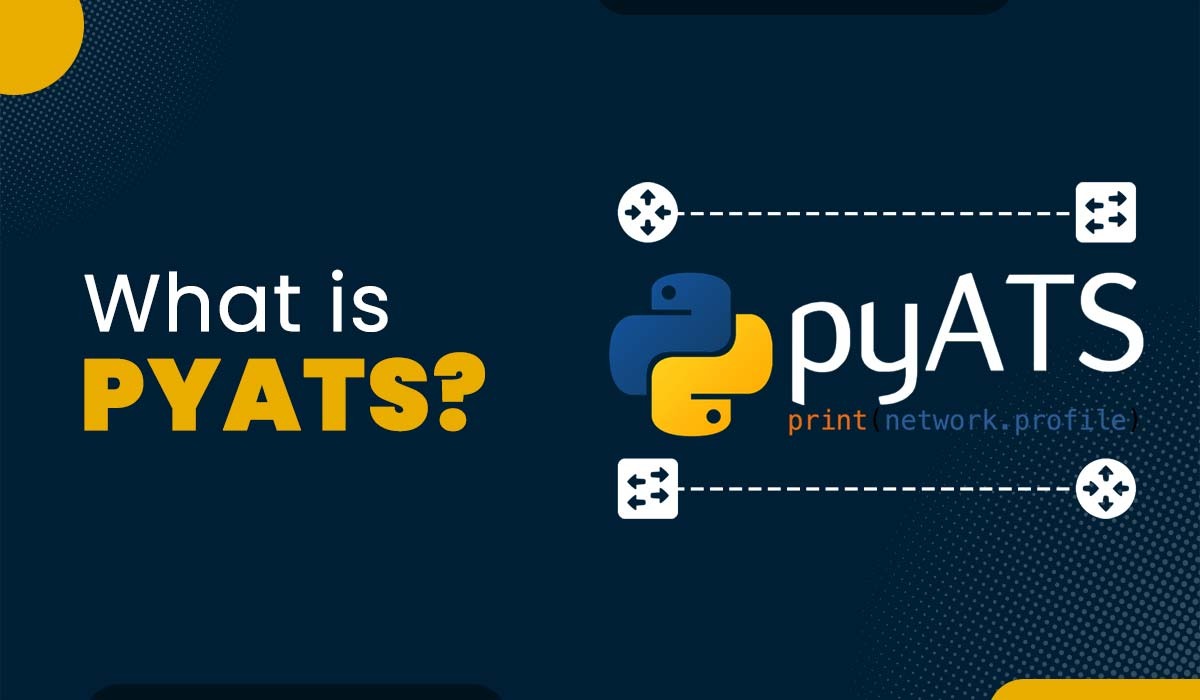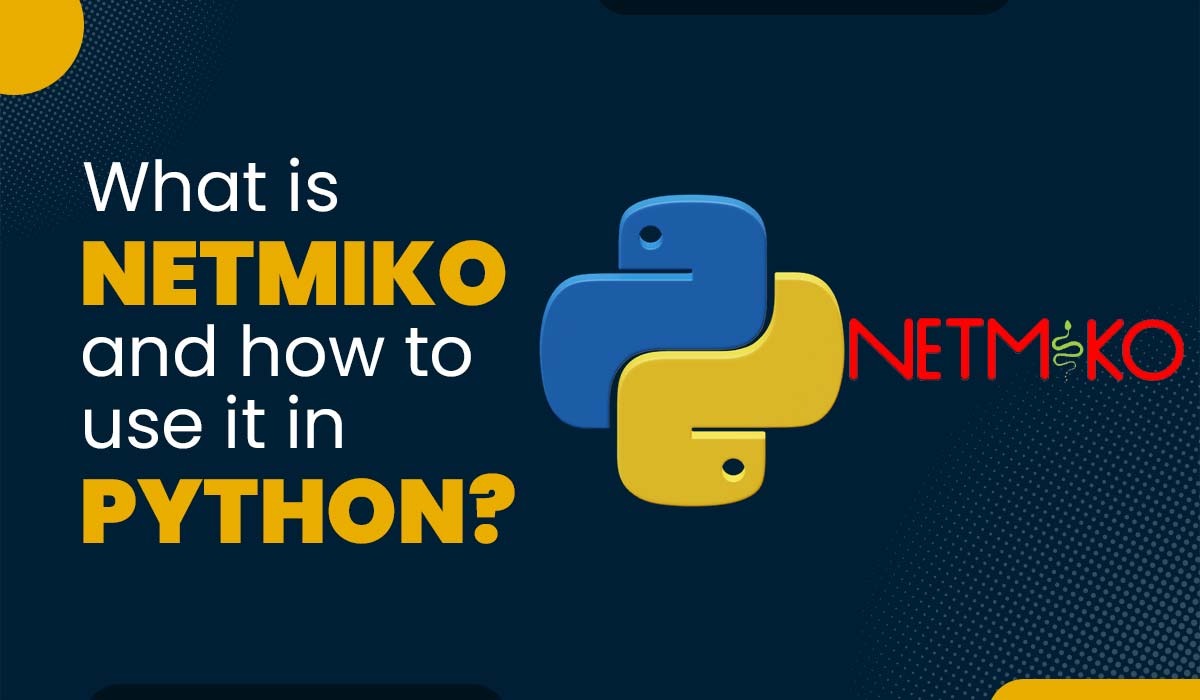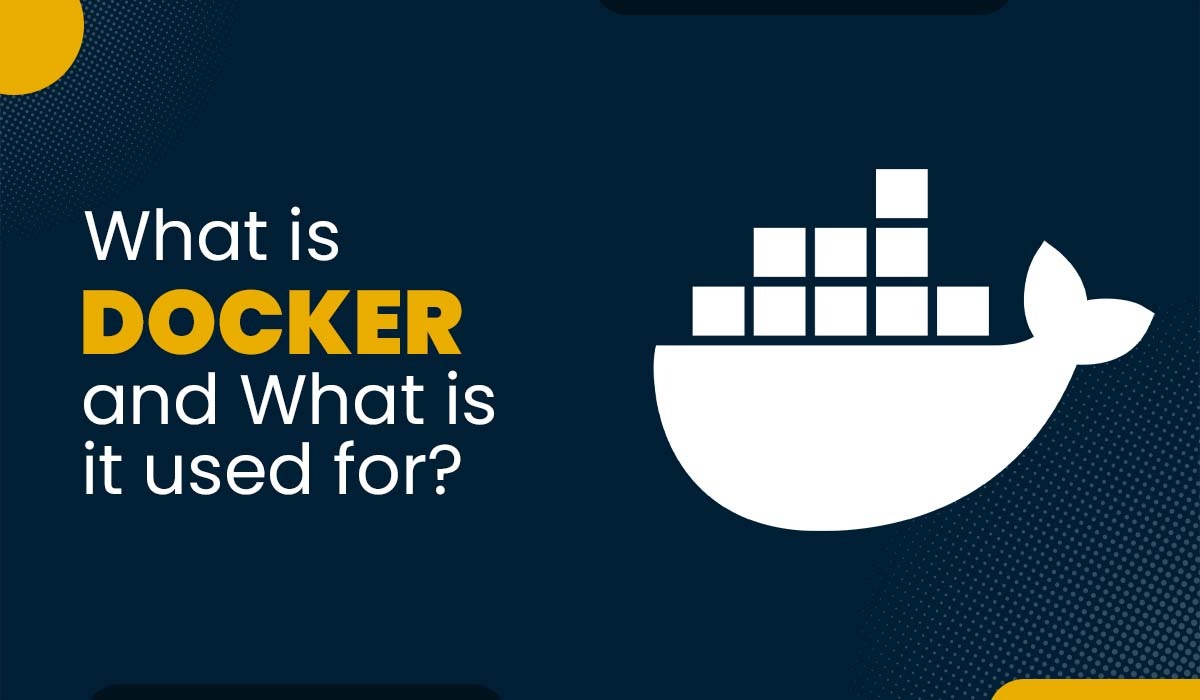What is CCIE (Cisco Certified Internetwork Expert)?

Computer networking solutions have now become the backbone of every business operation. Whether it’s a small startup or a large enterprise, everyone relies heavily on networking infrastructure in order to achieve seamless communication as well as data transfer. As with time, businesses continue to expand and evolve, which makes it crucial to have skilled professionals by their side who can design, implement, and manage complex network solutions. This is the reason why it’s important to go for CCIE. In this blog, we will focus on CCIE and clear all the doubts that one has in their professional journey. Before getting into more details, let’s understand what it is. CCIE, or Cisco Certified Internetwork Expert, is widely recognized as one of the most advanced certifications in the field of networking. This certification is offered by Cisco Systems to network engineers who specialize in Cisco networking solutions. It showcases individuals’ highest level of expertise and proficiency in designing, building, implementing, maintaining, and troubleshooting complex enterprise networks. It’s basically a super-challenging certification that proves you’re a master of Cisco networking equipment. Think of it like a Ph.D. in the world of Cisco networking. This advanced certification is highly sought-after by employers and can significantly enhance one’s career prospects within the networking field. It is notoriously difficult to achieve. It involves passing a written exam and then a grueling eight-hour lab where you have to troubleshoot complex network scenarios. Becoming a CCIE is both a challenging as well as rewarding journey that requires a lot of hard work and dedication. Now, if we talk about the amount of time that it takes to become a certified professional can vary from person to person. It also depends on various factors such as individuals’ existing knowledge, experience, study habits, and most importantly the training institute. The trainer plays a major role in offering the guidance that one needs to excel in their professional career. On average, it will take around 6 months to 2 years in order to prepare and pass the exam. There are different specializations or tracks that one can choose within the certification. Each of these tracks focuses on different aspects of networking technologies. The seven certification tracks are: Let’s discuss each in detail – CCIE Enterprise Infrastructure is one of the most popular CCIE tracks and candidates will be learning advanced networking concepts related to R&S, security, automation, and programmability. Apart from this, they will be working with a wide range of Cisco networking devices, such as routers, switches, firewalls, and wireless access points. CCIE security certification from Cisco is crucial for IT experts who want to make a career in network security. In this course, students will be learning network security technologies such as firewalls, VPNs (Virtual Private Network), IDS/IPS (Intrusion Detection and Prevention Systems), and Security Access Control. Apart from this, students will learn the best security policies in order to mitigate the risks. This certification helps individuals with the skills to design, implement, and troubleshoot complex collaboration solutions with the help of different technologies and protocols. The topics that students will be learning are Quality of Service (QoS) implementation, collaboration edge solutions, video infrastructure components, network services, security protocols, and advanced troubleshooting techniques. Apart from this, students will be using applications such as Cisco Unity Connection and Cisco Unified Contact Center Express. CCIE Data Center certification is designed to help students become proficient in the deployment and troubleshooting of data center technologies. If we talk about the topics that students will learn from this training are data center networking, storage networking, compute platforms, automation, and security. They will also learn advanced concepts in technologies like VXLAN, FabricPath, ACI, UCS, and Nexus switches. CCIE Service provider certification is designed for network engineers who want to specialize in service provider technologies. Students who are pursuing this certification will learn a wide range of topics, including advanced R&S, MPLS, QoS, BGP, IPv6, and network security. CCIE Wireless certification is for network engineers who want to specialize in wireless networking technologies. The topics that students will be learning from this training are wireless LAN design, implementation, and troubleshooting, RF principles, wireless security, mobility, and high availability. Apart from this, students will also learn advanced topics such as location-based services, mesh networking, and integrating wireless networks with wired networks. One of the latest CCIEs is DevNet, otherwise known as DevNet Expert. It validates your expertise in automating Cisco networks. To earn it, you’ll pass two exams: one on automation principles and design and a challenging hands-on lab where you build network automation solutions. Before discussing which CCIE is in demand, let’s focus on whether it is worth it or not. Yes! It is totally worth it If someone wants to go for CCIE. It not only demonstrates one’s expertise in networking and IT infrastructure but also opens up new opportunities. Some of the reasons why one should consider it as their professional career choice. CCIE Enterprise is currently one of the most in-demand certifications as compared to other tracks. The reason behind its popularity is due to the fact of increasing enterprise network complexity. Now, what does CCIE Enterprise bring to the table? Having this certification can change someone’s professional career by opening new doors of opportunities in the competitive job market. The comprehensive knowledge that one is getting from this certification includes network design, implementation, troubleshooting, and optimization. This will enable professionals to handle various networking challenges with ease. Apart from this, the recognition and prestige associated with this certification contribute to its popularity. CCIE Enterprise certification is continuously updated in order to reflect the latest trends and technologies in networking such as SD-WAN, automation, and cloud integration. By staying current with these advancements, professionals remain relevant and in demand in the ever-evolving networking landscape. Now one should be curious about the prerequisite for this certification. Let’s discuss this in detail. In order to pursue a CCIE certification, candidates must meet some prerequisites. This will ensure that the candidates who are going for the lab exam must have the necessary knowledge and experience in order to succeed in the exam. The CCIE certification or lab exam cost is $1900 for any Expert-level lab/practical tests taken at mobile lab sites using the Cisco kit option. The CCIE certification or lab exam cost is $1600 for any Expert-level lab/practical tests taken at Cisco testing facilities or mobile lab sites using the Bring Your Own Device (BYOD) option. Exam costs are based on per exam attempt and do not include travel or accommodation expenses. Costs may vary depending on the exchange rate and local taxes. CCIE certified professionals are always in high demand across different industries such as telecommunications, healthcare, Education, IT services, and many more. Some of the job roles are: There are many other job roles for certified candidates. Companies value expert-level professionals a lot for their advanced technical skills and ability to design and manage complex network infrastructures effectively. The salary package for a CCIE in India can vary as it depends on various factors such as experience, location, company, and industry. The average salary can range from 10 LPA to 30 LPA, depending on the factors we just discussed. The salary can further go higher once one moves to more senior-level positions, specialized roles, and experience. Now, many individuals get confused about how to master this certification. Let’s Discuss! Studying for the Cisco Certified Internetwork Expert certification requires a structured approach and dedication. Here are some steps to help you prepare for the exam: Now, let’s discuss the course duration and fee that will help students get an idea of what amount of time and money they have to invest in order to become a certified professional. There are various training providers that offer CCIE courses to help candidates prepare for the certification exams. The duration of these courses can range from a few weeks to several months, depending on the depth of the curriculum and the training schedule. The course fees for these training programs can also vary, with some providers offering bundled packages that include study materials, practice exams, and exam vouchers while others do not. Note: It is always recommended to go for training institutes that are Cisco-accredited. This will give students the assurance that they are following the Cisco syllabus and further lead them to clear the exam with ease. Now most of the students are confused about going for expert level or staying with the CCNP certifications. CCNP (Cisco Certified Network Professional) and Cisco Certified Internetwork Expert are both valuable in terms of opportunities one is seeking, but both focus on different skill levels and career objectives. When we talk about CCNP, it is considered a mid-level certification that mainly focuses on more specialized areas of networking. While, in the case of CCIE, it is an expert-level certification that shows a higher level of expertise in Cisco technologies. Now, which one to choose depends on various factors such as one’s career goals and experience level. If someone is getting the right job roles as well as salary, they might consider staying with CCNP and gaining more experience. If someone is looking to advance in their networking career, it is recommended to go for higher courses, and in this case, it is Cisco Certified Internetwork Expert. While it is possible to pursue a CCIE certification without having a CCNA certification, it is highly recommended to have a solid foundation in networking concepts and Cisco technologies before attempting the exams. CCNA certification provides a good starting point for building the knowledge and skills needed to succeed in the advanced program. Both are Cisco certifications that mainly focus on networking technologies. Still, there are some differences between the two in terms of complexity, degree of knowledge, and job roles. CCNA is an entry-level certification that only covers the fundamentals of networking. On the other hand, CCIE is an expert-level certification that demands a higher level of expertise with Cisco technologies. Cisco Certified Internetwork Expert is mainly responsible for ensuring the reliability, security, and performance of network infrastructures and is also involved in designing and implementing solutions for a wide range of networking challenges. Students who have cleared the CCNP core exam, i.e., having CCNP core certification, are eligible for CCIE certification.Introduction
What is CCIE?
How long does it take to become CCIE?
CCIE Types
CCIE Enterprise Infrastructure
CCIE Security
CCIE Collaboration
CCIE Data Center
CCIE Service Provider
CCIE Wireless
CCIE DevNet/DevNet Expert
IS CCIE worth it?
Which CCIE is in demand?
CCIE certification prerequisites
CCIE Certification Cost
CCIE jobs and Salary package in India
How to Study for CCIE?
CCIE Course Duration and Course Fee
CCNP or CCIE
Frequently Asked Questions
Q1. Can I do CCIE without CCNA?
Q2. What is the difference between CCIE and CCNA?
Q3. What does a Cisco Certified Internetwork Expert do?
Q4. Who is eligible for CCIE certification?







